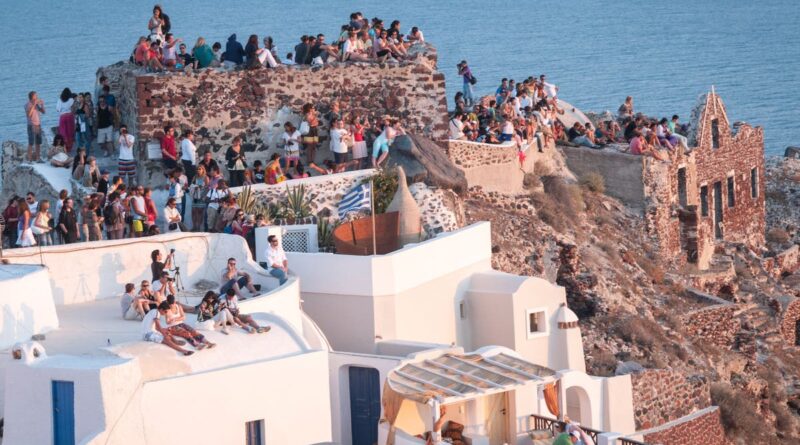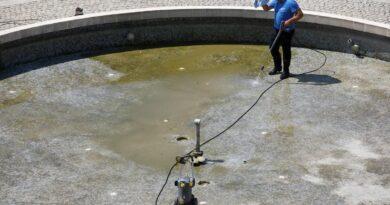Greek government plans to stop new hotels in parts of Santorini amid overtourism crisis
Support truly
independent journalism
Our mission is to deliver unbiased, fact-based reporting that holds power to account and exposes the truth.
Whether $5 or $50, every contribution counts.
Support us to deliver journalism without an agenda.
The Greek government plans to ban building in the caldera zone of Santorini as concerns continue to grow about overtourism and infrastructure development in the region.
Santorini, one of Greece’s most-visited islands, is known for its white-washed villages, picture-perfect landscapes and photo-worthy sunsets that have attracted millions of tourists to the region.
Yet worries have grown surrounding the mass tourism and the consequential building plans to support these tourists that could harm the volcanic island’s historical landscape and natural surroundings.
This has prompted Greece’s environment and energy ministry to draft a piece of legislation that will be voted on in parliament, which includes a clause to suspend all building licences in the caldera zone.
The legislation aims to halt any rapid development of infrastructure on Santorini that could modify the island’s natural character and will call all current building permits in the caldera zone into review. Swimming pools and building extensions will also fall under the suspension clause.
The move to vote on Santorini’s infrastructure future comes after local authorities from the area have continuously campaigned to protect and preserve the traditional landscape and the island’s natural beauty.

Nikos Zorzos, the mayor of Santorini, told the Greek Reporter that he has requested the government to “halt the construction of all types of hotel units, short-term rentals, and especially strategic investments, not only for the caldera but for the entire island of Santorini.”
The mayor has previously voiced his concerns about developing the island for the benefit of tourists and visitors, having consistently called for a ban on new hotel units and short-term rentals.
Zorzos also said that the island, which is only around 29 square miles, could only support a certain amount of construction, what he calls “irrational tourist development.”
“When the needs keep increasing, new consecutive problems will build up which we won’t be able to resolve; [this would be] the increasing need for water and electricity, for instance, which we have worked hard to get to their present level, and we keep working on,” Zorzos told the outlet.
Santorini’s white houses and blue-domed churches, all backed by the deep blue Aegean Sea, have attracted a swarm of tourists donning selfie sticks and cameras trying to get the perfect picture on the cobbled streets of this very Instagrammable island.
Around 3.4 million tourists visited Santorini in 2023, dwarfing the 25,000 permanent residents of the island.
For more travel news and advice, listen to Simon Calder’s podcast




